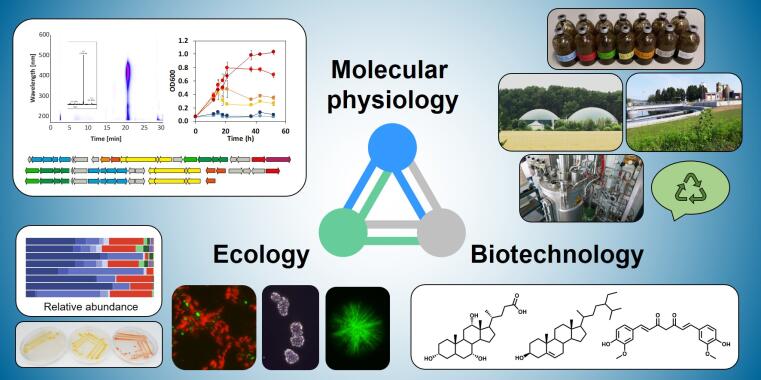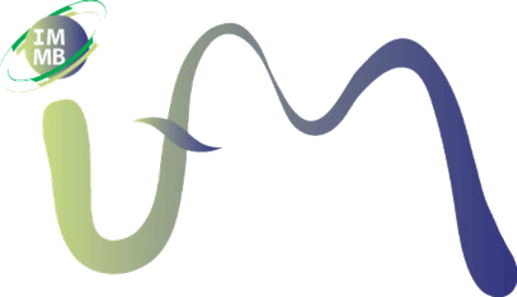Übersicht unserer Forschungsthemen

© Uni MS - AG Philipp Bacterial metabolism of steroid compounds
Steroids are ubiquitous organic compounds with diverse functions in eukaryotic organisms. In bacteria, steroids occur only as rare exceptions. However, many bacteria are able to transform and degrade steroid compounds as part of the global carbon cycle. Continue
Bacterial degradation of synthetic compounds
Synthetic compounds are constantly and increasingly entering our environment. These include plastic, pesticides, pharmaceuticals and all kinds of industrial chemicals. It is desirable to remove synthetic compounds from waste- and surface-waters via microbial degradation. Continue
Bacterial cell-aggregation and biofilm formation
In their natural habitats bacteria predominantly live in cell aggregates and biofilms. Cells within these multicellular structures have physiological properties that distinguish them from freely suspended cells. An important property of aggregated cells is a higher tolerance against stresses, such as toxic chemicals. Continue
Interspecific interactions of bacteria
In their natural habitats bacteria are engaged in numerous interactions with other microorganisms. It can be assumed that a high number of the genes within bacterial genomes, which encode proteins of unknown function, might have roles in interspecific interactions of bacteria. Continue
Eco friendly COlourants for Polymer PrOducts (ECOPRO) & Curcumine based sustainable colours (CurCol)
The Interreg NWE project ECOPRO continues the previous project CurCol. The aim of the project is to develop sustainable and biodegradable colourants for packaging materials. Continue
Bürgerbeteiligung in der Bioökonomie (BIOCIVIS)
Biotechnologische Prozesse wie die Reinigung von Abwasser, die Produktion von Biogas und die Erzeugung bio-basierter Chemikalien sind heute bereits wichtiger Bestandteil einer bioökonomischen Wirtschaftsweise. Im Sinne einer Reduzierung des CO2-Ausstoßes und der Nutzung von Biomasse anstelle fossiler Rohstoffe haben derartige Prozesse das Potential zur Verbesserung der Nachhaltigkeit vieler weiterer Verfahren beizutragen. Weiter
Bürgerbeteiligung in der Bioökonomie (BIOCIVIS)
Biotechnologische Prozesse wie die Reinigung von Abwasser, die Produktion von Biogas und die Erzeugung bio-basierter Chemikalien sind heute bereits wichtiger Bestandteil einer bioökonomischen Wirtschaftsweise. Im Sinne einer Reduzierung des CO2-Ausstoßes und der Nutzung von Biomasse anstelle fossiler Rohstoffe haben derartige Prozesse das Potential zur Verbesserung der Nachhaltigkeit vieler weiterer Verfahren beizutragen. Weiter
Prevention of Water Pollution by Pharmaceuticals (PREWAPHARM)
Das Projekt PREWAPHARM (Prevention of Water Pollution by Pharmaceuticals) ist eine internationale Zusammenarbeit mit dem Ziel, die Umweltauswirkungen von pharmazeutischen Abfällen in der Region Nordwesteuropa zu verringern. Das Projekt konzentriert sich auf innovative Strategien, um zu verhindern, dass Arzneimittel in die Wassersysteme gelangen, insbesondere durch verbesserte Sammel-, Entsorgungs- und Behandlungsverfahren Weiter

